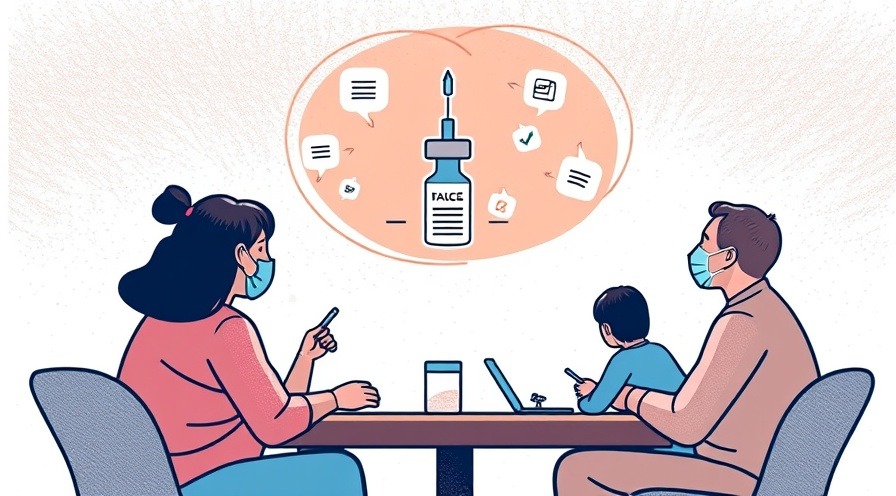
What RFK Jr.’s FDA Purge Indicates About Vaccine Transparency
In a significant shake-up at the Food and Drug Administration (FDA), Robert F. Kennedy Jr. has made headlines by purging key staff involved in the Freedom of Information Act (FOIA) requests, which raises important questions about transparency in the ongoing discussions surrounding COVID-19 vaccine lawsuits. This decision, while controversial, comes at a time when vaccine hesitancy is on the rise among the public, and clarity over vaccine data is more crucial than ever.
The Context Behind the FOIA Staff Changes
The FDA is not just another government agency; it plays a pivotal role in ensuring that the medications and vaccines we rely on are safe and effective. By dismissing FOIA staff members, Kennedy appears to be taking a step toward tightening control over which information is released to the public, especially when it pertains to ongoing litigation surrounding COVID-19 vaccines. Such actions have sparked concerns that this may further undermine public trust in governmental health organizations.
Potential Implications for Vaccine Transparency
The implications of this purge extend beyond staff changes; they reverberate throughout public health discourse. Ensuring transparency in governmental organizations, particularly those involved in health safety, is fundamental to maintaining public trust. As the conversation surrounding vaccine effectiveness continues, managing perceptions and information dissemination becomes all the more critical. Research indicates that transparent data sharing fosters higher public confidence, which is essential in combating vaccine hesitancy.

Historical Context: Trust and Vaccination Rates
Historically, trust in vaccinations has fluctuated greatly. Key moments, such as the controversies surrounding the MMR (measles, mumps, and rubella) vaccine, showcase a trend where misinformation can lead directly to declining vaccination rates. With the current global health environment, Kennedy's decision might awaken parallels to past attempts at controlling the narrative around vaccines, which could hinder efforts to uphold public health standards.
Counterarguments: A Different Perspective
While the decision to modify FDA staff may raise alarms, some proponents argue that a streamlined approach to information dissemination might actually lead to more consistent messaging across the agency. They advocate for a centralized communication strategy that mitigates public confusion about vaccine data and safety. However, this perspective is notably contentious, as the risk of reduced transparency is a valid concern amongst health advocates.
Current Events: COVID-19 and Vaccine Litigation
The backdrop of ongoing COVID-19 vaccine litigation adds a layer of complexity to this story. With numerous lawsuits challenging vaccine mandates and safety regulations, the stakes have never been higher. How the FDA manages information flow now may set precedents for how such legal matters will impact public health policies moving forward. The landscape of public health is continually evolving, and actions like these could potentially shape future regulatory frameworks.
Conclusion: The Call for Vigilance
As consumers and stakeholders in public health, it is vital to remain vigilant about changes to how information is shared within health organizations. The FDA’s role and responsibilities must be clearly articulated, especially in times of crisis. Moving forward, citizens should advocate for transparency, demanding clear and accessible information regarding vaccines and medical responses to public health emergencies. In a world where misinformation can proliferate, an informed public is our greatest asset.
 Add Row
Add Row  Add
Add 




 Add Row
Add Row  Add
Add 

Write A Comment